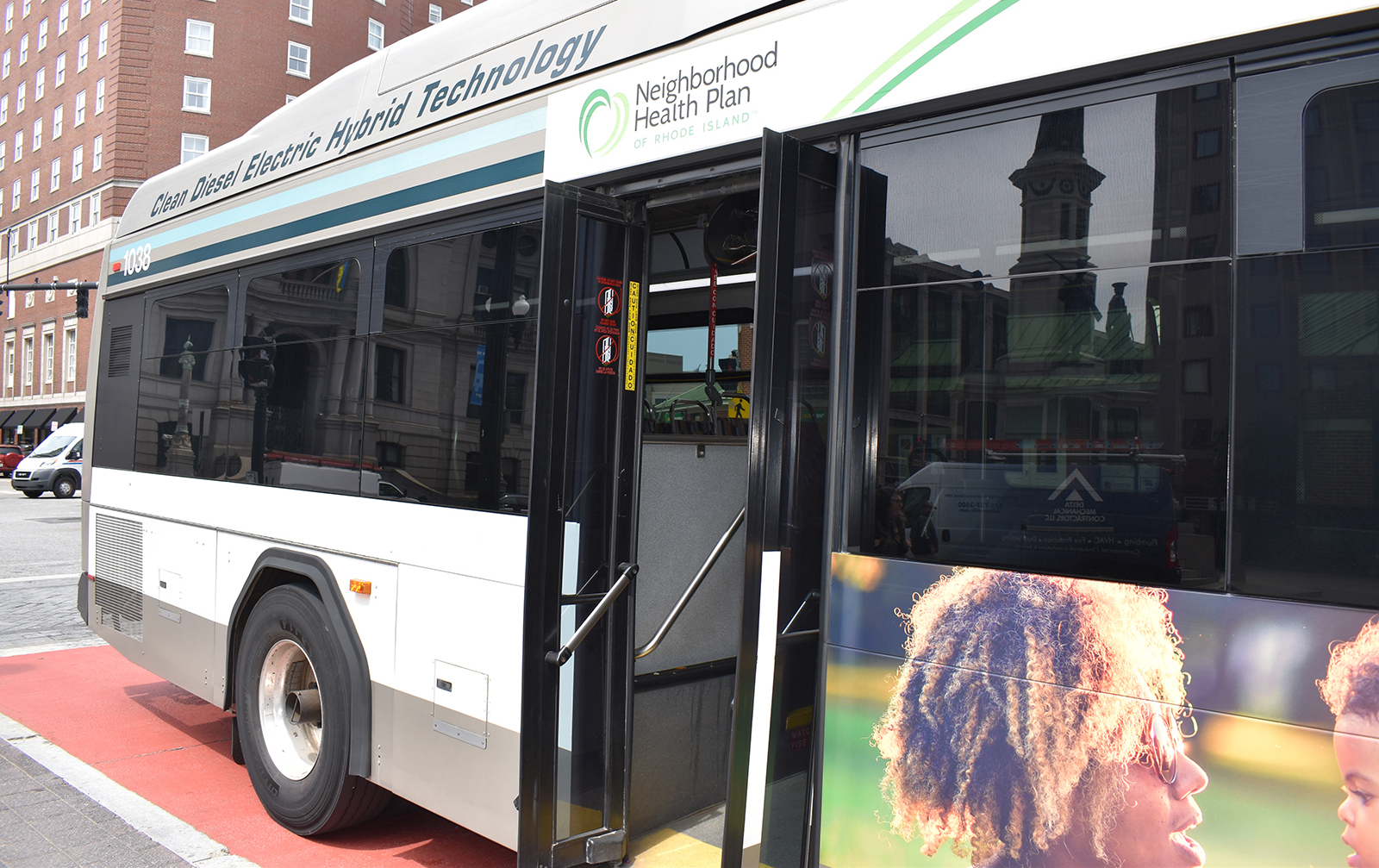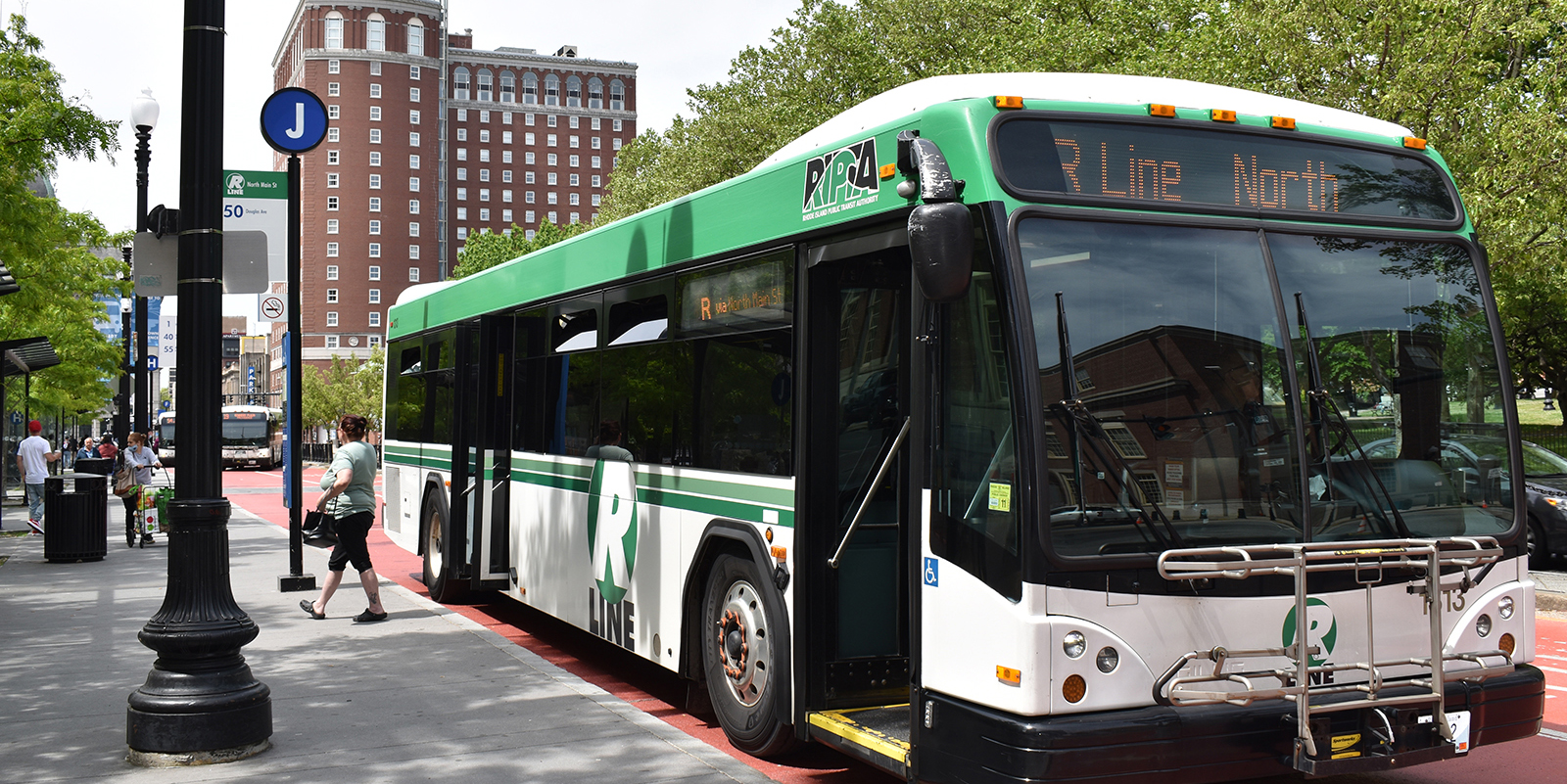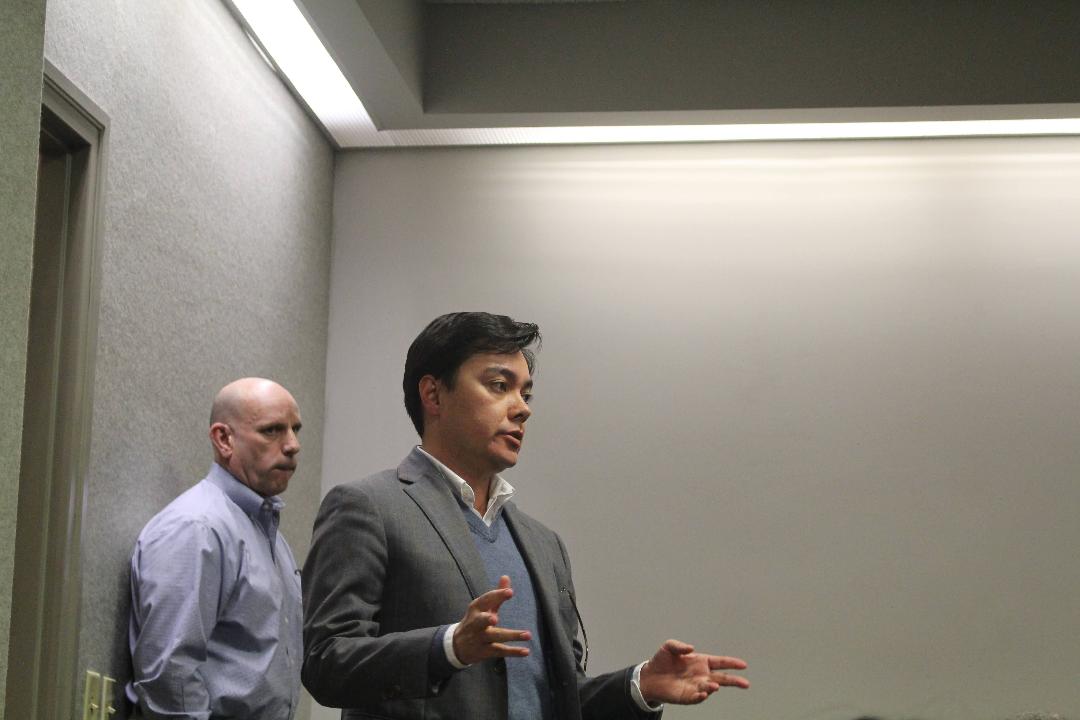Transit Riders Look for Kennedy Plaza Plan to Support
September 1, 2021
PROVIDENCE — Kennedy Plaza serves as the start and end points to all bus routes around Rhode Island, but a plan favored by state transportation officials would break this central hub into smaller stops spread around downtown.
The idea has received plenty of pushback from bus riders and transit supporters. Many activists and community members say the plan makes it more difficult for people of color, people with low incomes, riders with disabilities and the elderly.
Grow Smart Rhode Island and the South Providence Neighborhood Association filed a federal civil rights complaint in January against the state over the project, alleging it is discriminatory.
Rhode Island Transit Riders, a grassroots advocacy group dedicated to improving mass transit, held an online community meeting Aug. 31 to discuss the various plans to overhaul Rhode Island’s bus network. Members claim splitting up the routes among different downtown stops will create longer commutes, require transfers that are farther apart and confuse the system.
Under the state’s latest plan to redesign Kennedy Plaza, about half of all routes would move farther south into the Jewelry District, with the remaining routes shifted to a new terminal at the Providence Train Station on Gaspee Street.
The Rhode Island Department of Transportation (RIDOT) has said the proposed plan, known as the Multi-Hub Bus System, would unite bus and train service, offer more access to high-traffic areas such as the hospitals, the Statehouse and state agencies on Smith Hill.
The Transit Riders don’t believe that will be the shakeup’s end result.
“Kennedy Plaza can be improved at a much lower cost than reconfiguring or building a new hub,” said Barry Schiller, a Transit Riders member.
“I would rather see Kennedy Plaza kept as is and improve it and hire more security guards to make it safe for everyone,” Ed Soares said during the recent online community meeting.
At least three other differing plans for Kennedy Plaza have been drawn up since 2014, when Rhode Island voters passed a $35 million bond question dedicated to investing in transit infrastructure and improving bus service.
The plan overwhelmingly favored by activists and community members during the Transit Riders’ meeting was the one more closely aligned with the state’s Transit Master Plan. The proposal builds on Kennedy Plaza as a central hub, while also building up dozens of regional and local community hubs to provide greater transit service across the state and not just in metro areas.
RIDOT officials have promised the new stops proposed in the Multi-Hub Bus System will have modern facilities, with restrooms, indoor waiting areas, real-time information boards and bicycle racks.
Other plans discussed at the community meeting included the city of Providence’s transit plan from 2017, which solicited public feedback and made Washington Street downtown only for buses. The city’s plan, however, only allowed between seven and nine bus berths, limiting any possible expansion in routes.
Another plan would build a new bus terminal across from the courthouse on Dorrance Street, and while it would keep routes together, riders dislike the distance it puts between them and Kennedy Plaza’s central location. A third plan discussed would bury a new intermodal bus terminal underneath the east lawn of the Statehouse. The upfront costs, however, are high. Funding for it would come from a public-private partnerships and it remains doubtful if the plan could expand capacity as needed.
Earlier this year, the Imagine Downtown Providence project reimagined Kennedy Plaza yet again — this time with a proposal from global design consultant Arup. Washington Street in this plan would be subsumed into a larger plaza to create a larger public space. The Providence Rink would be transformed into a versatile multiuse area for events of up to 2,000 people. This new plaza would contain amenities such as electric charging stations, plant beds to filter stormwater headed to the Woonasquatucket River, five public bathrooms, elevated river walks and a mist ring.
The total price tag for this project is $140 million, leaving many Transit Riders skeptical it could ever happen.
“It’s the kind of thing we’ve seen so many times before,” said Randall Rose, a member of the Transit Riders. “Kennedy Plaza was shut down from 2014 to 2015 for construction. There were these glossy pictures of how great it would be after, and once construction was done, Kennedy Plaza wasn’t any better.”
Those who spoke at the recent Transit Riders meeting also cautioned the need to consider traffic congestion in areas surrounding high-traffic destinations such as Kennedy Plaza, the Statehouse and the train station.
“There is enough traffic and congestion now without adding buses and people waiting for buses to that equation.” said Marjorie Waters, community organizer with the Rhode Island Organizing Project.
Additional concerns mentioned included a lack of environmental considerations in Rhode Island’s transit plans.
“The state is legally obligated to reduce greenhouse-gas emissions by 2030 and transport is the largest source of that,” said Mal Skowron, transportation program and policy coordinator for the Green Energy Consumers Alliance. “You can’t meet the 2030 [Act on Climate] goal by tying your hand behind your back and making transit worse.”
Transit activists now see their chance to influence Gov. Dan McKee. McKee has deferred taking a position on the plan to break up Kennedy Plaza, a project inherited from former Gov. Gina Raimondo, who pushed hard for the plaza’s breakup.
“I think the governor is looking for what plan would the public get behind,” said Patricia Raub, coordinator of the Transit Riders. “If we have a plan we prefer, we need to start talking about it.”




RIDOT leadership should be replaced with a pro mass transit leadership who understands that cars are the past, not the future.